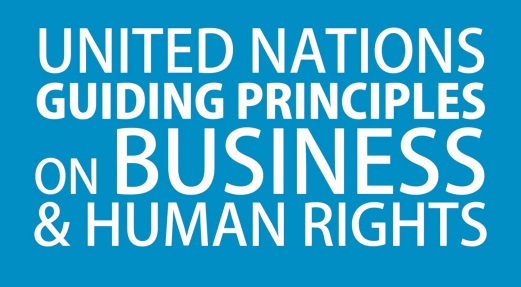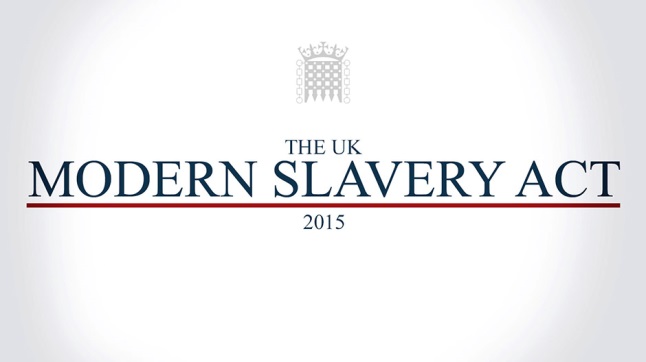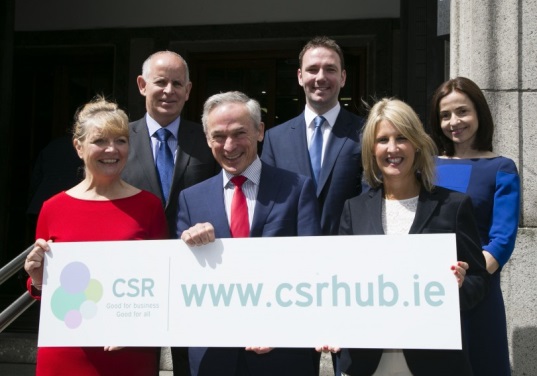CSR Trends 2016 Part 1 What should businesses look out for?
At Business in the Community Ireland, we work with a multitude of stakeholders, from our participation in the government National Action Plan on CSR to our partnerships at international level with CSR Europe, the World Business Council and others. These key relationships enable us to be informed on the global CSR landscape, providing insights into what businesses should focus on and to stay abreast of future trends.
For the year ahead we are featuring a two-part article on CSR Trends 2016 that provides key insights from our Senior CSR Advisers.
If you are a member company please login in the member area to see a more detailed feature with further insights and tips on how you can apply some of these trends to your CSR Strategy. Click here here.
Part 1
- Climate Change
- Sustainable Procurement
- Business & Human Rights Reporting and the Modern Slavery Act
- Enhanced role of EU and Irish governments
Climate Change
 In the last decade alone, estimates have put the cost to the world economy of natural disasters occurring as a result of climate change at US$2.7 trillion. With focused media attention on COP21, the UN Climate Change Conference, Climate Change has at last been placed centre stage as an issue requiring urgent global action.
In the last decade alone, estimates have put the cost to the world economy of natural disasters occurring as a result of climate change at US$2.7 trillion. With focused media attention on COP21, the UN Climate Change Conference, Climate Change has at last been placed centre stage as an issue requiring urgent global action.
The global market for low-carbon goods and services is worth more than US$5.5 trillion and growing (Global Commission on the Economy and Climate).
Example: Unilever has achieved a million tonnes of carbon savings across manufacturing and zero waste is sent to landfill from all factories. Carbon emissions per tonne of production is now 65% below 1995 levels and most of the energy used by Unilever in Europe and the US is green.
Sustainable Procurement
Sustainable Procurement continues to be high on the global agenda. ISO 20400 is the new draft Guidance Standard on Sustainable Procurement and it also features as part of ISO 26000, the Guidance Standard on CSR on which the BITCI Business Working Responsibly Mark is based.
With a goal of integrating sustainability into the procurement process, the Guidance Standard says an organisation should be: “accountable for its impacts on society, the economy, the environment & its supply chains, taking into account the life cycle of goods and services; it must be transparent in its procurement decisions, activities & encourage its suppliers to be transparent”.
Business & Human Rights Reporting and the Modern Slavery Act 2015
 The impact of business on human rights is gaining prominence on the international agenda. The UN Guiding Principles on Human Rights Reporting Framework, published in February 2015, is a guide for companies to report on human rights issues. See http://www.ungpreporting.org/
The impact of business on human rights is gaining prominence on the international agenda. The UN Guiding Principles on Human Rights Reporting Framework, published in February 2015, is a guide for companies to report on human rights issues. See http://www.ungpreporting.org/
This document outlines good human rights reporting as:
- Governance of Respect for Human Rights – a documented & public commitment.
- Defining a Focus of Reporting – choosing salient human rights issues.
- Management of Salient Human Rights Issues – policies, assessment, stakeholder engagement , performance and remediation
 The Modern Slavery Act 2015 was passed in the UK in March 2015. Modern Slavery is the term used to describe slavery, servitude, forced and compulsory labour and human trafficking.35.8 million men, women and children are trapped in modern slavery.Trafficking is the fastest growing form of international crime and the 3rd largest criminal industry after drugs and arms trafficking.Through the Transparency in the Supply Chain clause, companies with a turnover of £36 million or more (operating in any part of the UK, regardless of where they are headquartered) will be required to publish an annual anti-trafficking statement from March 31, 2016, signed by a Company Director.In this statement, companies must disclose the steps taken to mitigate the risk of human trafficking and modern day slavery in their supply chain.
The Modern Slavery Act 2015 was passed in the UK in March 2015. Modern Slavery is the term used to describe slavery, servitude, forced and compulsory labour and human trafficking.35.8 million men, women and children are trapped in modern slavery.Trafficking is the fastest growing form of international crime and the 3rd largest criminal industry after drugs and arms trafficking.Through the Transparency in the Supply Chain clause, companies with a turnover of £36 million or more (operating in any part of the UK, regardless of where they are headquartered) will be required to publish an annual anti-trafficking statement from March 31, 2016, signed by a Company Director.In this statement, companies must disclose the steps taken to mitigate the risk of human trafficking and modern day slavery in their supply chain.
Enhanced role of EU & Irish Government
 In Ireland, the National Action Plan on CSR is to be maintained as a competitiveness measure under the Department of Jobs. SMEs represent a core part of government focus on CSR with the need to drive responsible local sourcing. A Business and Human Rights plan is also in development driven by the Department of Foreign Affairs. At European level, the November 2015 Enterprise 2020 Summit indicated a high degree of EU engagement on CSR. A set of goals is in place for 2020 and the agenda is social, focused on employment and education. 40 national partner organisations of CSR Europe have signed up to the goals and progress will be tracked over the next five years. Youth and those under 25 years of age are of particular focus and Ireland has an opportunity to take a leadership role. Europe sees education as underpinning a response to issues such as terrorism.
In Ireland, the National Action Plan on CSR is to be maintained as a competitiveness measure under the Department of Jobs. SMEs represent a core part of government focus on CSR with the need to drive responsible local sourcing. A Business and Human Rights plan is also in development driven by the Department of Foreign Affairs. At European level, the November 2015 Enterprise 2020 Summit indicated a high degree of EU engagement on CSR. A set of goals is in place for 2020 and the agenda is social, focused on employment and education. 40 national partner organisations of CSR Europe have signed up to the goals and progress will be tracked over the next five years. Youth and those under 25 years of age are of particular focus and Ireland has an opportunity to take a leadership role. Europe sees education as underpinning a response to issues such as terrorism.
The European Pact for Youth focuses on the most hard to reach in our communities and on creating a culture of partnership. The Pact aims to help build a pro-youth and pro-innovation Europe by creating a fair and equitable culture of partnerships between business, education and young people.These partnerships are designed to enhance the quality of training and skills that young people can acquire, including transversal digital, entrepreneurial, green and soft skills. Examples are initiatives that support non-formal and informal learning, projects that boost apprenticeships or aim to make learning science and technology more attractive. Europe’s teachers will be equipped with the necessary skills to become leaders in the classroom. There will be 10,000 partnerships and 100,000 traineeships or entry level jobs. Ireland will articulate its role on this in the CSR Forum.
Read CSR Trends 2016 Part Two


